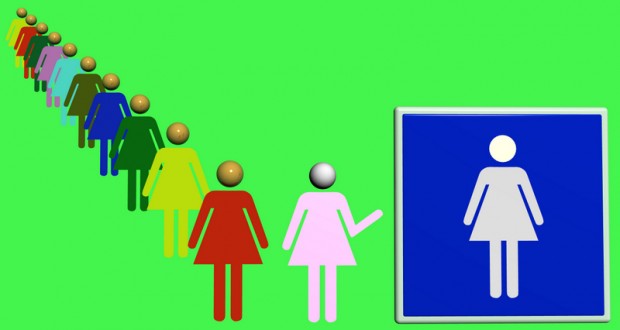By: Red Hot Mamas
Published: July 14, 2015
If you’re noticing vaginal dryness, painful sex or vaginal infections, you may also be at increased risk for urinary tract infections or UTI’s. These symptoms typically are at least in part due to lower levels of estrogen, a basic change that happens with menopause.
The tissues of the reproductive tract and urinary tract are very sensitive to estrogen. As women transition from their reproductive years into, through and beyond menopause, estrogen levels get lower and the tissues respond. During the reproductive years, the end of the urethra, the tiny tube that carries urine out of the bladder, typically ends flush with the tissues of the upper vagina. As estrogen levels lower, the tissues of the upper vagina begin to get shorter and narrower and pull back from the tip of the urethra. That causes the tip of the urethra to be exposed to more bacteria and more at risk for infection.
Estrogen also has other effects on the urinary tract. It encourages the bladder to produce natural antimicrobial substances and also makes the urinary tract tissue stronger by closing the gaps between the lining cells of the bladder. Keeping these gaps together makes it harder for bacteria to invade the deeper layers of the bladder wall. Estrogen also helps prevent the outer most cells of the bladder wall from shedding so when bacteria enter the bladder, there are more cells able to protect the deeper tissues of the bladder – like a first defense against infection.
So what can you do if you are getting UTI’s as part of The Change?
For some women, doctors recommend staying on chronic antibiotics such as nitrofurantoin. Because so many antibiotics are leading to resistance, this approach is becoming less popular.
Cranberry extract (not drink but the concentrate) is another approach. It works by making the urine more acidic and that helps to lower the risk of UTI’s. For some it is helpful but the study results are mixed. It can’t hurt but may not keep UTI’s away.
Probiotics are another alternative approach. Studies done taking oral lactobacillus twice daily have been helpful. You can take them by mouth and the higher the concentration of lactobacillus, the better. Compare labels and get the one with the most “good” bacteria in them.
Let’s go back to the beginning of our discussion, where I talked about UTI’s and low estrogen levels. I think one of the most effective treatments in preventing recurring UTI’s is low dose estrogen – if your doctor feels it is safe for you and it is something you are comfortable taking. All you need is local estrogen and that can be in the form of a tablet, cream or vaginal ring. Local estrogen mostly stays in the vaginal area, but some forms to get into the blood stream so discuss this with your doctor. One Dutch study compared one year of either local estrogen or chronic antibiotics in more than 250 women for one year. The women initially had an average of seven UTI’s per year. Local estrogen and taking continuous both reduced the number of infections by roughly half. And the local estrogen can also help vaginal dryness, painful sex and prevent antibiotic resistance. It’s my first line choice in preventing UTI’s in menopause.
Mache Seibel, MD is one of America’s leading experts in women’s health and menopause experts. He is editor of My Menopause Magazine and Menopause Breakthrough Action Plan. Download his Free EBook: Changes During the Change: What to expect and what to do about it. His latest book, The Estrogen Window, is due from Rodale in April 2016.
 Red Hot Mamas In Charge of Change.
Red Hot Mamas In Charge of Change.




